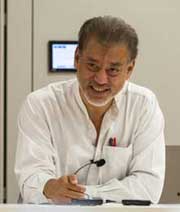Developing Countries Struggling To Cope With COVID-19
SYDNEY and KUALA LUMPUR, Feb 23 (IPS) - The ongoing COVID-19 pandemic is adversely impacting most developing countries disproportionately, especially the United Nations’ least developed countries (LDCs) and the World Bank’s low-income countries (LICs).
Years of implementing neoliberal policy conditionalities and advice have made most developing countries much more vulnerable to the COVID-19 pandemic by undermining their health systems and fiscal capacities to respond adequately.

Less taxes
Four decades of ‘neoliberal’ policy influence has resulted in a ‘race to the bottom’ to cut direct taxes, particularly corporate tax rates, ostensibly to promote investments and spur growth.
But most LDCs and LICs were left high and dry as foreign direct investment (FDI) seeks profitable locations considering various relevant criteria besides tax rates. Thus, tax cuts have not induced the promised investments, but also resulted in net revenue losses.
Revenue loss due to such tax competition could be five times that due to illicit financial flows seeking to evade taxes. Low and middle-income countries lose US$167~200 billion annually, around 1.2~1.5% of their national incomes, to corporate tax competition.
Poor countries’ tax bases have narrowed since the 1990s, with Sub?Saharan African countries suffering the highest revenue losses as a share of national incomes. More indirect taxes have not compensated for less direct tax revenues.

Less government spending
As the tax system became less progressive, tax cuts also depleted the public coffers in most developing countries. Pressures on governments to pursue fiscal consolidation and austerity grew, with devastating impacts for public health.
Implementing IMF-World Bank structural adjustment program conditionalities, most sub-Saharan African countries drastically reduced their healthcare budgets. Per capita public spending on health in LICs fell during 2004–2012, while their shares of national income declined during 2004-2015.
Years of public sector underinvestment seriously undermined public health systems in most developing countries, especially LDCs and LICs. Government provision was deliberately reduced to promote for-profit private healthcare, adversely affecting public service quality, effectiveness, costs and access.
Unsurprisingly, these economies not only lacked fiscal resources to cope with the pandemic, but their fiscal systems had also been made incapable of responding to the challenge. Thus, these poorly funded, inadequate health systems were grossly unprepared for the pandemic.
Uneven impacts
United Nations Secretary-General António Guterres cautioned last July that COVID-19 was making achievement of the Sustainable Development Goals (SDGs) “even more challenging” as many developing countries were already “off track” in 2019, before the pandemic.
On 3rd April, International Monetary Fund (IMF) Managing Director Kristalina Georgieva warned that the worst recession since the Great Depression would hit developing countries hardest, as they have “less resources to protect themselves”. World Bank President David Malpass also acknowledged that it would “hurt world’s poorest countries the most”.
The pandemic has already set back decades of modest and uneven progress in developing countries. The World Bank recently estimated those falling into extreme poverty worldwide in 2020 at between 119 and 124 million people, i.e., by around 15%.
And the situation is getting worse. Rich country resistance to the developing countries’ request for a TRIPS waiver, vaccine imperialism and the flawed COVAX arrangements are deepening the crisis in poor countries as most remain far behind in the vaccine queue.
To boost their profits, vaccine developers restrict greater output. Despite having received various generous government subsidies, they refuse to share research findings needed to massively scale up generic production. Meanwhile, rich countries have secured many times more vaccines than they need.
Limited fiscal space
Before the COVID-19 pandemic, low income countries already had the largest deficits, higher borrowing costs and more debt relative to government revenue than high-income countries. Thus, they devote ever larger shares of their modest revenues to pay interest.
The pandemic has undoubtedly worsened public finances. Average deficits in LICs increased from -4.0% of GDP in 2019 to -5.7% in 2020, with debt rising from 43.3% to 48.5% of GDP.
Fiscal responses have been influenced by access to financing. Global fiscal support reached nearly US$14 trillion in 2020, comprising US$7.8 trillion in additional spending or foregone revenue, and U$6 trillion in equity injections, loans and guarantees.
Nearly US$12 trillion (about a fifth of GDP) was deployed in advanced economies to address the pandemic and its economic fallout. Meanwhile, LICs could only afford US$26.6 billion (1.2% of GDP), as emerging market economies deployed around 5%.
Declining fiscal space
Countries relying on primary commodity production, tourism or manufacturing for transnational supply chains have been most disrupted by the pandemic. More open to the outside world, their government revenue and fiscal space have been more severely affected.
Revenue shortfalls from output drops, concurrent commodity price drops and debt demands have limited many LICs’ fiscal capacities. The pandemic is thus more likely to leave lasting impacts, including worse poverty and malnutrition.
The IMF head urged countries not to hesitate to “spend, but keep the receipts”, suggesting a major U-turn in IMF fiscal policy advice. Likewise, despite her earlier reputation as a ‘debt hawk’, World Bank Chief Economist Carmen Reinhart advised “First fight the war, then figure out how to pay for it”.
But most LICs have little alternative but to rely heavily on foreign aid. Even before the pandemic, aid from the OECD countries only reached 0.31% of their gross national income (GNI), less than half the 0.7% of national income target agreed to more half a century ago.
Had donors met their LDCs aid target of 0.15~0.20% of their national incomes, LDCs would have received an extra US$32 billion more annually at least. Donor government cuts in bilateral aid commitments by almost 30%, from US$23.9 billion in the first five months of 2019 to US$16.9 billion during January-May 2020, have only made things worse.
Meanwhile, despite Boris Johnson’s rhetoric about reviving Commonwealth, i.e., colonial, connections now that Britain has ‘Brexited’, he plans to cut bilateral aid by 50~70% following the £2.9 billion cut in July 2020!
Britain is now paying “Covid bills off the backs of the poor”, even breaching UK law! Ever clever on the hoof, BoJo may yet donate the excess vaccines he has ordered to the ‘most deserving’ in another typically spectacular, grandiloquent gesture while continuing to block much broader access by denying developing countries’ TRIPS vaccine waiver request.
Follow @IPSNewsUNBureau
Follow IPS New UN Bureau on Instagram
© Inter Press Service (2021) — All Rights Reserved. Original source: Inter Press Service

